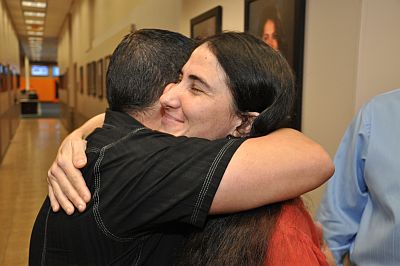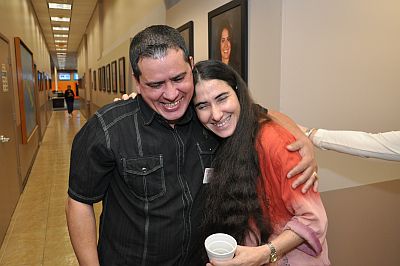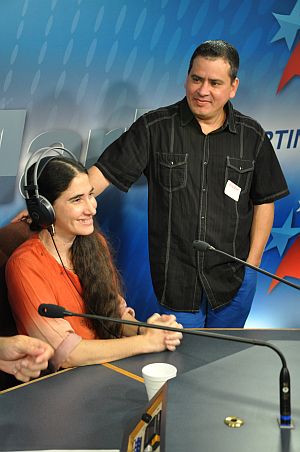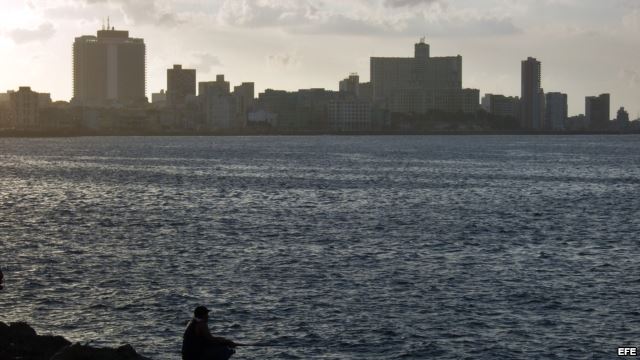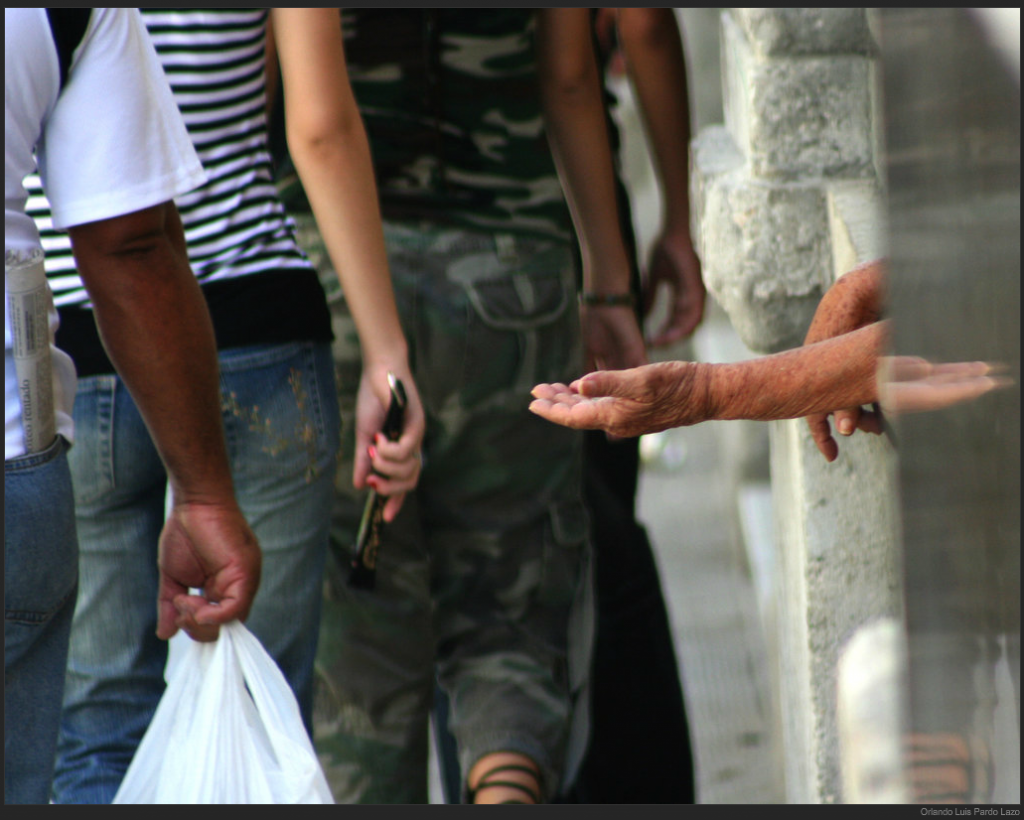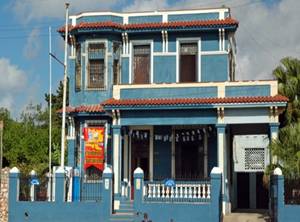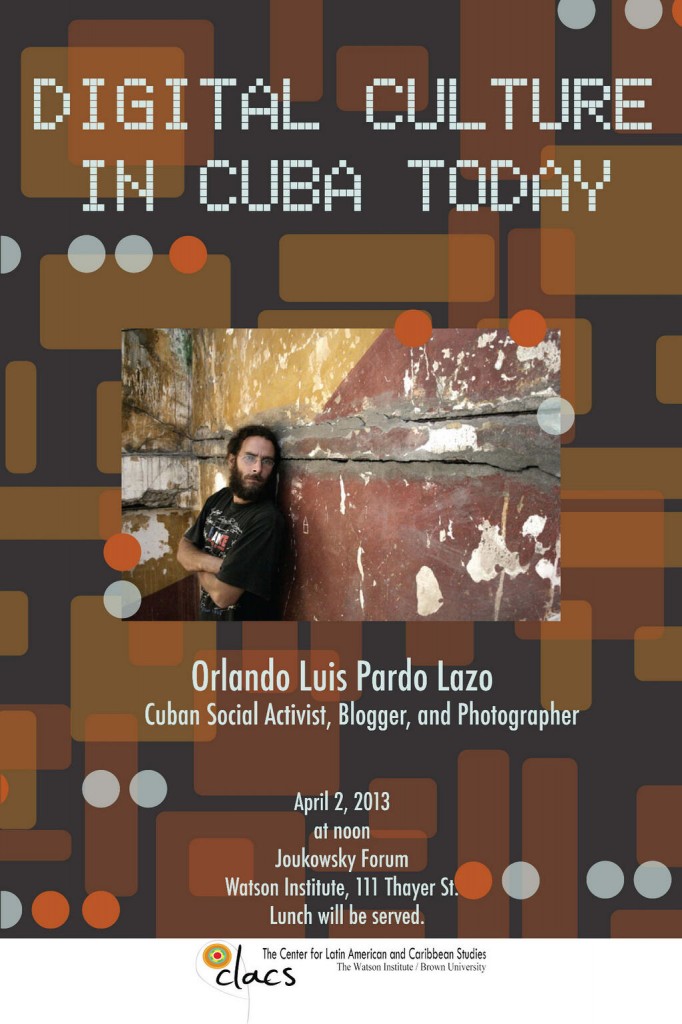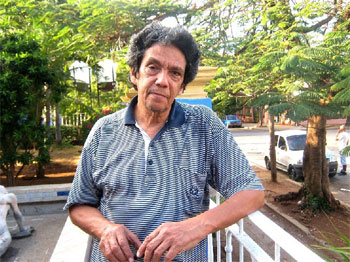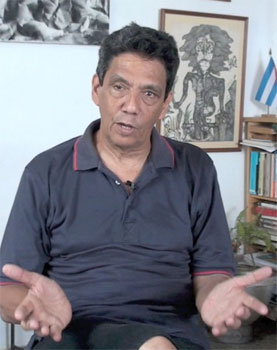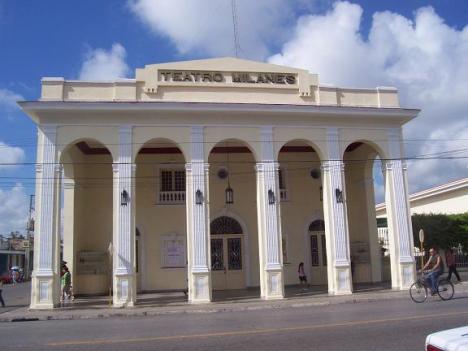 What makes a city is its people. The Capitol is not the most important thing in Havana, nor are the abundance of churches and alleys what is most striking of Camagüey, nor is the Moncada Barracks the greatest thing in Santiago, nor are their seawall walks the most pleasant parts of Caibarién, Cienfuegos, Gibara and Puerto Padre. It is the people who live or have lived there, their work, their faith, their worth or their dreams, who give meaning to those places.
What makes a city is its people. The Capitol is not the most important thing in Havana, nor are the abundance of churches and alleys what is most striking of Camagüey, nor is the Moncada Barracks the greatest thing in Santiago, nor are their seawall walks the most pleasant parts of Caibarién, Cienfuegos, Gibara and Puerto Padre. It is the people who live or have lived there, their work, their faith, their worth or their dreams, who give meaning to those places.
And Pinar del Rio is a city that — forgive me for all the other valuable things that don’t appear in this blog — makes more sense because in many of its houses, ever stronger, grows the magazine Coexistence.
Occasionally Dagoberto Valdés, friend and editor of the magazine Coexistence, sends me a text message, a text that is not like the others, although it is also news: there is an Editorial Board. And I must be, and the finicky editor of texts that he lets loose in his alert counsels, and I’m glad because I cam going to see a ton of friends and good people, “good for me and good for this island bathes in waves of despair,” all at once.
So once more I pack my backpack, and correct the commas in an article I’m sure I haven’t sent them yet, and get a ticket or hang around the waiting lists at the bus stations. And begin the trip to Pinar del Río.
I’ve traveled a lot to the city that seemed a remote land before: since that first trip of curious journalist, when with my beard and covered in road dust I arrived at the home of Dagoberto Valdés, a few months from the end of the magazine Vitral, to help put out the first issue of White Rose. And instead of people consumed by sadness or resentment against the deserters, and the every-man-for-himself in which so many Cubans sail today, I found a team focused on their work, optimistic and affable, wonderfully resilient.
(That was my first trip to Pinar del Rio and the Magazine, in a very journalistic and traveling summer, when I still hadn’t been out of the University of Santa Clara did two months later, which I was two months later, by chance. And I joined the Editorial Board in February 2011, my own birthday present, four months before I was kicked out of the ISA. Obviously, my relationship with the magazine had a strong impact on me).

The red signs announces the closing of the workshop (also a museum) after 13 years, and the blue sign says “Strictly Forbidden to Stop Dreaming”*
Coexistence brought me to the home-based museum of Pedro Pablo Oliva*, and The Great Blackout epic my Cuban favorite. Coexistence gave me the chance to film, which I still owe them for, when a phenomenal jury gave Henry Constantin its audiovisual prize. Coexistence, that had managed to weave together a ton of friends in Pinar del Rio and outside the city, which they shared with me.
And Coexistence included me in its Editorial Board, and that night of the first meeting my modesty about being an upstart, for being the last to arrive and from the farthest away, they treated me almost equal to the founders, freely and without hesitation, with the right to edit and critique every new issue of the magazine.
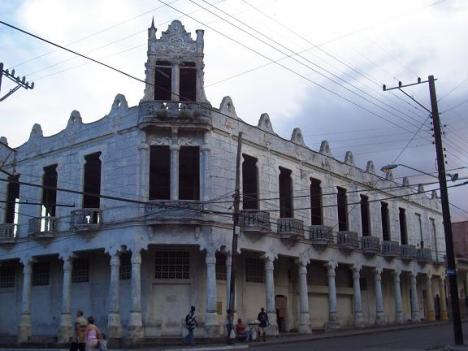
A building in ruins in the center of the city.
Usually the traveler goes to see Soroa and Las Terrazas, climbs the hills of Vinales or goes down in the caves of Santo Tomas, spends an afternoon at Guyabita or breathig in the best tobacco brangs, bathing in Maria La Gorda, taking the waters of Los Portales and looking how it flows to the Gulf of Mexico from Cano de San Antonio or enjoying the clouds from Pan do Guajaibon.
All that is good, if one wants to know only the superficial. But if you want to know something of the best of humanity reborn in Pinar, and you left without a greeting to the people of Coexistence, without the magazine, a photo or a conversation, the traveler, possibly, would have missed everything.
Henry Constantín
*Translator’s note: Pedro Pablo Oliva is a painter in Pinar del Rio who fell on the wrong side of the government. The associated events are detailed here by: Yoani Sanchez, Dagoberto Valdes, Miriam Celaya and Orlando Luis Pardo Lazo.
20 March 2013


